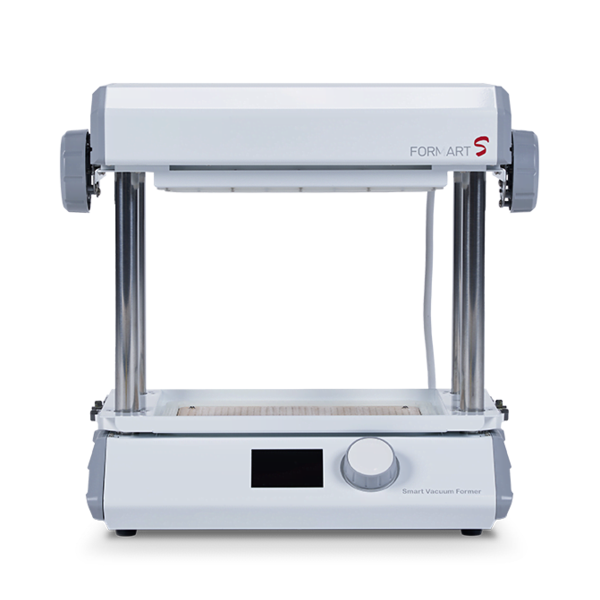How to make resin casting moulds at home - an alternative to silicone moulds
- Posted on
- Posted in Arts & Crafts, Home decor
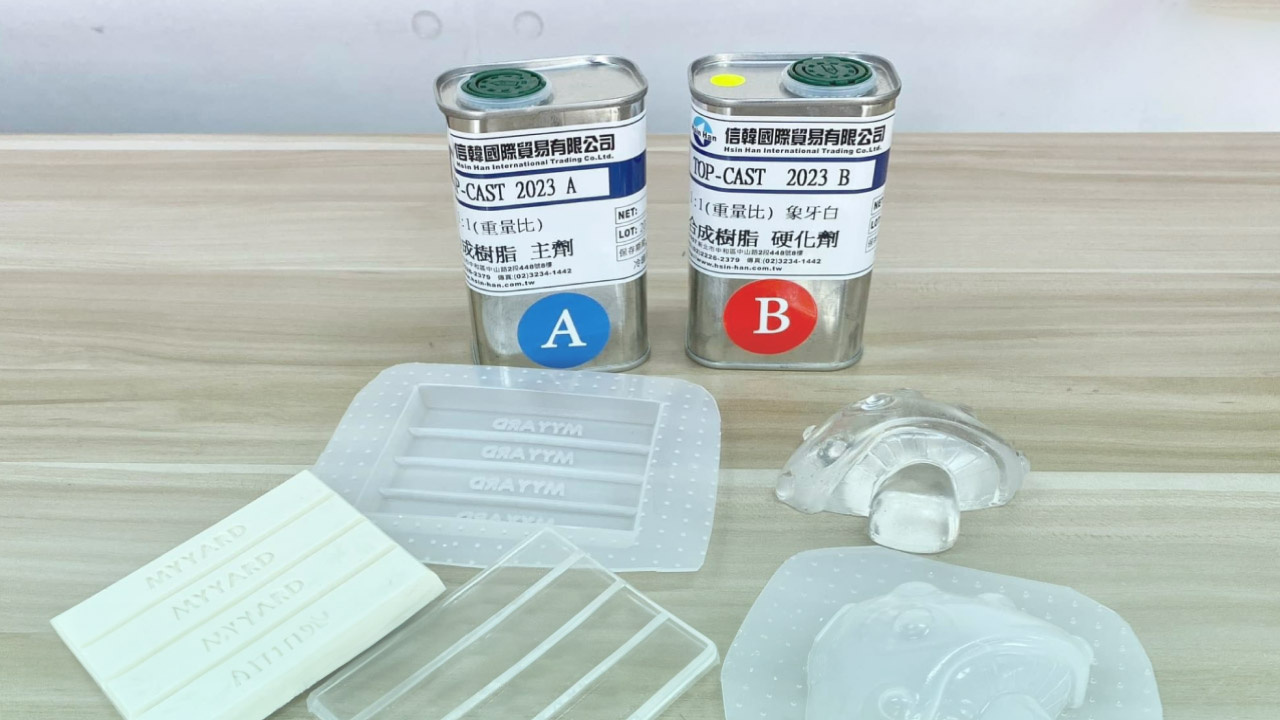
Resin casting with custom moulds has surged in popularity as a favoured method for crafting decorative items, like magnets, and jewellery. Find out how vacuum forming can be a cleaner and easier alternative to silicone for making resin casting moulds.
Resin casting with custom moulds has surged in popularity as a favoured method for crafting decorative items, like magnets, and jewellery. Find out how vacuum forming can be a cleaner and easier alternative to silicone for making resin casting moulds.
In this article, we delve into the process of how to create resin moulds, exploring the steps from start to finish. Wondering what materials are best suited for mould making? What are the key considerations? Is there a faster way? Let's find out as we dive into the world of resin casting and DIY resin mould-making!
Making silicone moulds for epoxy resin casting
When people talk about making resin moulds, they usually think of silicone moulds. These moulds are the most popular way of casting resin, but they can be complicated to make.
Typically, silicone comes in two parts, A and B, which need to be mixed in a 1:1 weight ratio for optimal results. But you always need to follow the manufacturer's instructions carefully as different brands might have different steps to follow.
After mixing the silicone, pour it into a frame or housing, ensuring it covers the original shape you want to create a silicone mold from. It is very important that you make this frame sturdy and watertight, or else the silicone will seep out through the gaps. A baking tray for cake can be a good solution for a frame, depending on the size of your object.
Make sure there are no air bubbles trapped inside the silicone as you pour it out, because that may ruin your mould.
When you have poured the silicone into the frame and covered the original object entirely, it is time to let the silicone cure. This process of hardening the silicone into a usable mould will take at least four hours.
Once the silicone has cured, carefully remove it from the frame and gently remove the original object from the silicone mould.
After this lengthy process, you can start casting resins with your new mould!
Now, wouldn’t it be nice if there was an easier way of making resin moulds?
Making resin casting moulds with vacuum forming
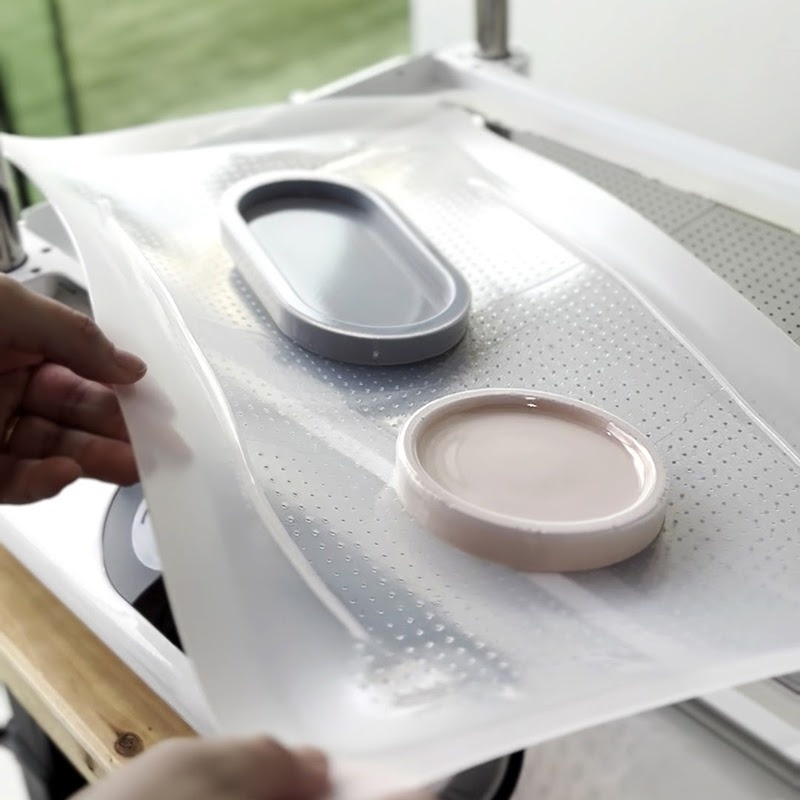
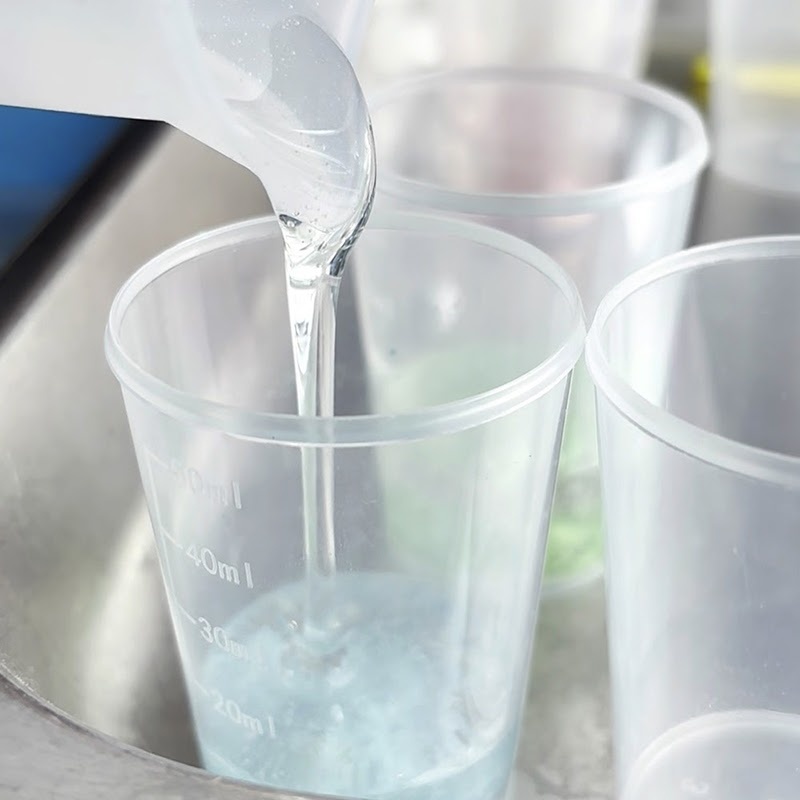
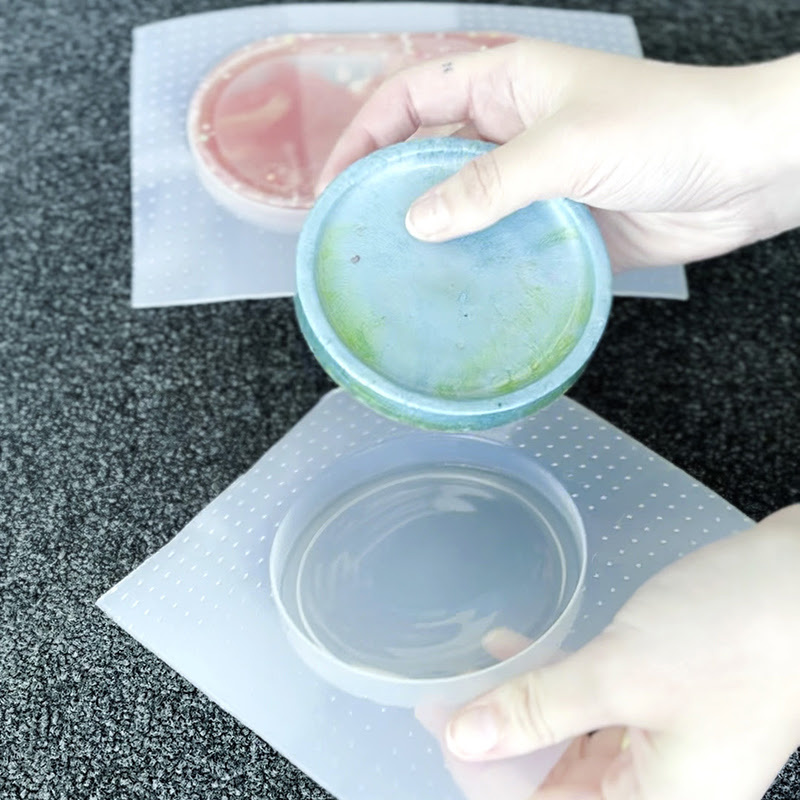
Making moulds manually can be a tedious and time-consuming process, often with limitations on customisation. From measuring and mixing materials to waiting for moulds to cure, the traditional method can hinder your creative flow.
That's where our desktop vacuum formers step in, transforming the experience of making your own resin moulds. Unlike manual methods, a vacuum former simplifies the process and ensures mould making is faster, easier, and more accessible to create custom reusable moulds.
The MY YARD FORMART vacuum formers use LDPE (low-density polyethylene) plastic sheets to craft blister shell moulds via thermoforming.
In comparison to silicone moulds, LDPE shells have significantly greater durability. While silicone moulds typically endure only about 20 uses, LDPE moulds can be reused hundreds of times or even serve as permanent moulds.
Unlike silicone, LDPE is not a sticky liquid, so the risk of making a mess of your workspace is greatly reduced. Combine that with the compact size of our MY YARD vacuum formers and there is plenty of room (and time) left to unleash your creativity!
Speaking of time: making an epoxy resin mould with vacuum forming takes about 5 minutes. Our vacuum formers offer a bunch of user-friendly features, like pre-set material settings and an intuitive interface that guides you through the whole forming process.
This will allow you to make new moulds quickly and efficiently.
In the video below you can see how we made a resin cast moon lamp with a vacuum formed mould.
Make your own custom moulds with a MY YARD vacuum former
Learning how to create your own resin moulds with our machines offers a wealth of benefits. Not only is it faster and easier than traditional methods, it also grants you the freedom to create truly unique and personalised pieces. Discover our FORMART series of vacuum formers and see how they can make your life easier!





